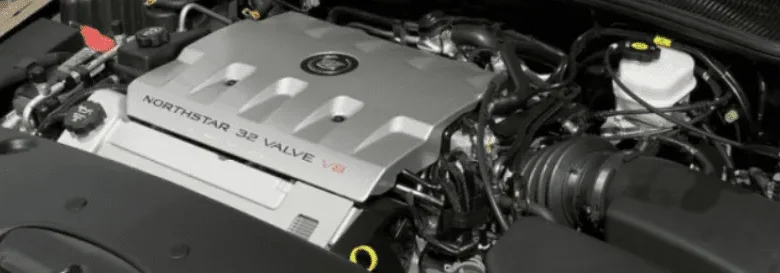Top 5 Gaskets Types for Cars and Their Ideal Sealers!

Gaskets are vital parts of a car as they provide essential seals to prevent leakages and drive performance. Having several types of gaskets on the market, you need to choose the right gasket with the top gasket sealer to serve the purpose.
This guide highlights the top five types of car gaskets and their suitable sealers to keep you out of hassle.
Let’s explain.
Top 5 Types of Gaskets and the Best Suitable Sealers
-
Valve Cover Gaskets
Valve cover gaskets seal the valve cover to the cylinder head. It helps prevent oil leaks and ensures proper lubrication within the engine. Valve cover gaskets need to be flexible and resistant to stickiness and heat. Regular inspection for gasket faults can prevent costly engine damage over time.
Suitable Sealer
Blue Magic Gasket Maker: It is perfect for valve cover gaskets that offer a strong bond and allow for some movement. It helps accommodate their thermal expansion under high temperatures.
-
Head Gaskets
Head gaskets are crucial to seal the engine block and cylinder head and prevent oil or coolant leakages. Make sure your installed hybrid head gasket or traditional head gasket can withstand high pressure and temperature fluctuations.
Ideal Sealer:
Permatex Ultra Copper RTV Silicone: It is ideal for your car’s head gaskets. This sealer offers resistance to extreme pressure and temperatures, making it suitable for high-performing engines.
-
Oil Pan Gaskets
Oil pan gaskets play a crucial role in sealing the oil pan to the engine and preventing oil leaks. They must be resilient to temperature fluctuations and exposure to greed. Proper installation ensures optimal performance and the engine’s longevity in the long run.
Best Sealer:
Loctite 569 Thread Sealant: It works excellently with oil pan gaskets, providing a reliable and strong seal that withstands heat and oil. It ensures a long-lasting performance.
-
Exhaust Gaskets
Exhaust gaskets are essential for sealing the connection between the engine and the exhaust manifold. They must endure high pressure and the temperature formed due to exhaust gases. Quality materials with an apt installation process are vital for optimal exhaust performance.
Perfect Sealer:
Permatex High-Temp Red RTV Silicone: It is the best sealer for exhaust gaskets, as it can withstand temperatures up to 650°F (343°C). Thus, it helps provide a durable and reliable seal.
-
Intake Manifold Gaskets
Intake manifold gaskets can seal the engine block to the intake manifold, preventing air and coolant leaks. These should be robust and capable enough to handle varying temperatures and pressures. Properly functioning gaskets enhance engine efficiency and fuel economy significantly.
Ideal Sealer:
3M Scotch-Weld Adhesive: This sealer is highly recommended for intake manifold gaskets as it offers a strong and flexible bond to ensure a tight seal even under extremely challenging conditions.
Wrap-up Reflections
Understanding these gasket types and the best suitable sealers for each type can help you prevent leaks and maintain optimal performance. You can ensure that your vehicle operates efficiently by selecting the ideal sealer. So, safeguard your engine’s longevity, and do not forget these perfect gasket-sealer matches made in the world of automobile repair and maintenance!
In summary, understanding the different gasket types is essential for maintaining your vehicle’s performance. The top five include head gaskets, intake manifold gaskets, valve cover gaskets, oil pan gaskets, and exhaust gaskets. Each serves a specific function and requires appropriate sealers for optimal effectiveness. For instance, silicone-based sealers are great for oil pan gaskets, while anaerobic sealants work well for intake manifold gaskets. Choosing the right gasket and sealer combination ensures a reliable seal, preventing leaks and enhancing engine efficiency. Proper maintenance and timely replacements will keep your vehicle running smoothly for years to come.









